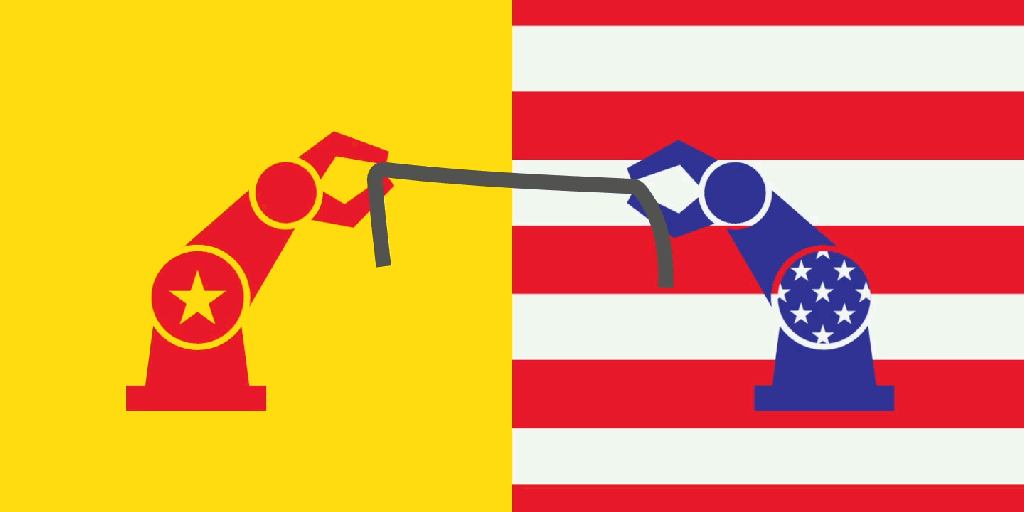If you think digital skills are key to survive in the 2020 digital economy, think twice

As evidence shows the acquisition of digital skills shouldn't be left exclusively in the hands of formal education (e.g. computer science programs) nor simply to incidental learning (e.g. the digital native's myth). The world that is coming will demand a more complex strategy, therefore, blended learning and permanent upskilling approaches will be critical. That will mean to better connect, combine and recognize different forms of learning such as formal, informal, non-formal, on the job training, social, among other spaces for gradually acquiring new skills and understanding.
This post offers 6+1 ideas (and further readings) to explore the challenges that automation, up skilling and changes in the labor force, might bring in the coming decade:
Recommended reading:
☞ Managing tomorrow's digital skills: what conclusions can we draw from international comparative indicators?
1. When thinking about digital skills it is important not to take for granted the relevance of the foundational skills, these capacities allow individuals, for instance, to think twice (and smartly) when using any digital systems. There are a number of studies which suggest that professionals with digital skills, but without critical thinking, diminish their possibilities to thrive in the global market. Human and technical capabilities are expected to become more intertwined. In other words, high tech and high touch, where a new generation of digital skills is linked with other agentic competencies such as: adaptability, the capacity to (un)learn and being able to perform in complex environments, just to mention a few.
Recommended readings:
☞ The relation between 21st-century skills and digital skills: A systematic literature review.☞ Yu, Liguo, ed. Overcoming Challenges in Software Engineering Education: Delivering Non-Technical Knowledge and Skills: Delivering Non-Technical Knowledge and Skills. IGI Global, 2014.
☞ Robinson, Danielle Simone; Datta, Namita; Massey, Emily; Kgasago, Tshegofatso; Jakoet, Mishkah; Glick, Peter J.; Carew, Diana Gehlhaus; Edochie, Ifeanyi; McLaughlin, Delores; Small, Andrew. 2018. Digital Jobs for Youth : Young Women in the Digital Economy (English). Solutions for Youth Employment. Washington, D.C.: World Bank Group.
☞ Tool for monitoring the skills demanded from the market can be of great benefit both for higher education organizations as well as for learners to decide their career development. Please refer to: Making sense of skills A UK skills taxonomy A UK skills taxonomy (by Jyl Djumalieva and Dr. Cath Sleeman)
2. Based on over 10 years of research, it is important to emphasize that digital skills are largely developed (also) in non-formal learning environments. That is something that should be addressed from the supply as well as from the demand side. From the supply side, many of these capacities are developed while building a startup, implementing a community project, or by personal learning while watching an online video or reading a manual, to name a few. As it is well known many of these capacities are not necessarily acquired in formal learning environments or can be supported by an academic degree. Alternative contexts in which these capacities can be developed are on the job training, collaborating in peer-to-peer based learning environments or simply driven by curiosity. From the demand side, it is clear that recruiters and employers do not rely (as they used to) exclusively on traditional certifications since many of these proficiencies are not supported by papers (e.g. diploma).
Recommended readings:
☞ Meyers, Eric M., Ingrid Erickson, and Ruth V. Small. "Digital literacy and informal learning environments: an introduction." Learning, media and technology 38.4 (2013): 355-367.☞ New Collar Certificate Program - IBM Skills Gateway - Global

3. There is a growing body of research focused on the importance of artificial intelligence, computer networking, game development, mobile application development, cybersecurity, today are expected to represent a larger portion of the labor market in the coming decade. All these capacities require not only being able to read and write code (like programming, which can be done by machines), but also and even more important perhaps is the capacity to unpack the software or the tech systems we use (decoding). This idea of "deconstruction", borrowed from the philosophy, is critical to understand how algorithms are built, identify bugs in the system, recognize bias, and problems with functionality but also how they can affect people or affect different groups of users. Certainly, this is closely connected with the idea of developing higher-order thinking skills (not exclusively the technological ones). Perhaps the challenge is not to think about digital skills as stand-alone instrumental capacities (e.g. knowing how to use a software or an app). It might be much more significant to integrate these digital capacities into different disciplines developing diverse forms of producing, combining, consuming and sharing knowledge. Otherwise, the risk is to value and measure only what can be easily evaluated, but ignoring a set of non-routine competencies that are also required today (e.g. complex thinking, collaborative problem solving, multidisciplinary thinking, not only data and machine literacy but also network and social systems literacies).
Recommended reading:
☞ Cobo C. (2019) How do you educate to decode the unknown?. World Bank Blog.
4. Broader attention will be needed to the emerging ethical challenges that come with artificial intelligence (e.g. audio, face, pattern or speech recognition systems) among other "intelligent" adaptive systems. It will be increasingly relevant to create new mechanisms (and regulations) to protect human interests and values, creating new interfaces (spaces of coordination) between autonomous systems and people (e.g. customers, citizens, civil organizations, vulnerable communities, among others). These new challenges won't be solved only by creating new AI principles (there are over 80 guidelines created in the last months). More complex systems will demand that citizens develop a more advanced set of digital skills in the 2020s. As observed in some countries, it is a good practice to develop a basic level of awareness and understanding of the challenges ahead (see for instance, Algorithm Watch as a good example of active civic engagement in this field).
Recommended readings:
☞ New Skills Now Inclusion in the digital economy - Accenture.☞Aoun, Joseph E. Robot-proof: higher education in the age of artificial intelligence. MIT Press, 2017.

he used to lead academic initiatives on ethics...
5. With the growing level of automation, it is necessary to ask to what extent human capacities, in general, will be replaced by data-intensive systems. Although there’s no future-proof answer to that question, it will be strategic to develop (more) "humanic" capacities, such as human-centered technological approach or ethical fluency, among others (non-technical but also) critical emerging fields. A higher level of specialization should also enhance higher levels of creativity, agency (self-direction), autonomy, intra-personal connection, where people are not displaced but enhanced by machines.
Recommended reading:
☞ Sussan, Fiona, and Zoltan J. Acs. "The digital entrepreneurial ecosystem." Small Business Economics 49.1 (2017): 55-73.☞ Lee, Kai-Fu. AI superpowers: China, Silicon Valley, and the new world order. Houghton Mifflin Harcourt, 2018.
6. Consider not only the entry points (e.g. skills acquired) but also the outputs (e.g. impacts in life). When measuring these skills, it is also needed to address some of the tangible outcomes that can be obtained when acquiring these digital skills. In other words, how the use of the Internet and other digital systems can impact specific aspects of everyday life. This means to track and understand the benefits that the strategic use of digital technologies can generate in terms of wage, personal well-being, professional development or even social capital, all factors that go beyond the digital skills themselves.
Recommended readings:
☞Nesta (2018) Open Jobs: Making labour markets smarter and empowering jobseekers How labour markets can become more collectively intelligent.☞Helsper, Ellen J., Alexander JAM Van Deursen, and Rebecca Eynon. "Tangible outcomes of Internet use: from digital skills to tangible outcomes project report." (2015).

Bonus track: As the experience shows, it is not a good idea to bypass educators in this conversation. When running the diagnostic of formal education it is also recommended to explore what digital skills do educators have and how they can enhance their higher-order thinking skills. What new capacities might they need in the coming future (and what are the best strategies to keep improving these capabilities). Whatever will be the case, the recommendation is not to ignore educators, but give them a voice and tools to ensure they will play a key role in the new landscape of education.
Recommended readings:
☞Eickelmann, Birgit. "Measuring Secondary School Students’ Competence in Computational Thinking in ICILS 2018—Challenges, Concepts, and Potential Implications for School Systems Around the World." Computational Thinking Education. Springer, Singapore, 2019. 53-64.☞Neil Selwyn (2019) Should Robots Replace Teachers?: AI and the Future of Education (Digital Futures). Polity Press.
☞ICILS 2018 International Computer and Information Literacy Study 2018. International Association for the Evaluation of Educational Achievement.

Posted in Education and ICT, futuro, Research on Jan 21, 2020




